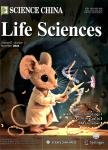Antisense EDRF1 gene inhibited GATA-1transcription factor DNA-binding activity in K562 cells
Antisense EDRF1 gene inhibited GATA-1 transcription factor DNA-binding activity in K562 cells作者机构:Beijing Institute of Basic Medical Sciences Beijing China Beijing Institute of Radiation Medicine Sciences Beijing China
出 版 物:《Science China(Life Sciences)》 (中国科学(生命科学英文版))
年 卷 期:2002年第45卷第3期
页 面:289-297页
核心收录:
学科分类:0710[理学-生物学] 07[理学] 071009[理学-细胞生物学] 09[农学] 0901[农学-作物学] 090102[农学-作物遗传育种]
主 题:erythroid differentiation, EMSA, transcription factor, cytokines, microarray.
摘 要:Our previous studies showed that EDRF1 influenced expression of a-globin mRNA and synthesis of hemoglobin in K562 cells and modulated self-renewal of K562 cells. To illuminate the function of EDRF1 in K562 cells, sense and antisense EDRF1 constructs were prepared and transfected into K562 cells. By using microarray and dot blot assay, 60 cytokine receptors and some oncogenes sharing important functions in cell proliferation and differentiation were investigated. The results of this study demonstrated that IL-6 receptor, GM-CSF receptor, c-Jun/c-Fos, c-Myc and c-kit genes were regulated by antisense EDRF1 expression. The regulation was confirmed by RNA blot assay. GATA-1 mRNA expression was modulated by EDRF1 gene transfection. Electrophoretic mobility shift assay suggested that the DNA-binding activity of GATA-1 was remarkably inhibited in K562 cells expressing EDRF1 antisense gene. DNA binding activity of NF-E2 was at the same level as control experiment. Therefore EDRF1 may play a role in erythroid proliferation and differentiation by affecting the interaction between GATA-1 and its cis-elements.



